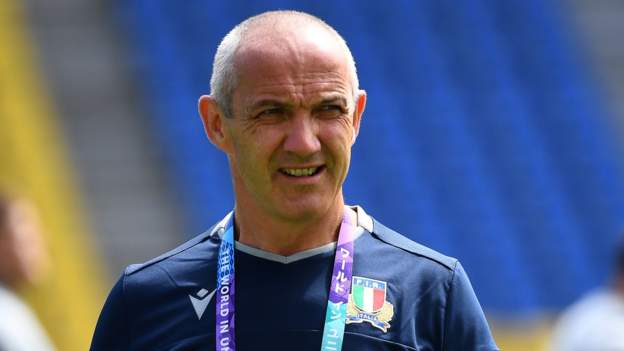
The Rugby Football Union (RFU) has said "special attention" is being paid to turning "spoon-fed" youngsters into the future leaders of English rugby.
RFU director of performance Conor O'Shea said the body wants to improve leadership across its age-grade teams.
"Modern-day life puts a big strain on producing a different sort of youth and we have to specifically look at how we develop leaders," said O'Shea.
"Life is actually part of that, as well in terms of how people are growing up."
Former Harlequins and Italy coach O'Shea, who took over as director of performance last year, was speaking as the RFU published its pathway and development framework.
It is designed to promote the "long-term success and sustainability of senior England teams which consistently win matches".
"They're spoon-fed - we do everything for young people rather letting them make decisions," added the former Ireland international.
"It's a challenge for everybody and it's something that we're acutely aware of. Specific attention is being paid to it."
In 2017, England men's head coach Eddie Jones said his team lacked leadership figures because of the "sheltered" nature of modern sport.
"Nowadays guys don't go to university, they don't go out and work, they are in more sheltered environments such as academies," he said.
Don Barrell, the RFU's head of performance pathways and programmes, said England's age-grade players are receiving extensive guidance to equip them for leadership roles.
"There are psycho-social behaviours that mean we need to develop those skills in people," added Barrell.
"We have to be a bit careful with leadership in terms of what we mean by it and that's something we spent time on unpacking with those players.
"A rugby game is a great example of real-life leadership. There may be a captain who makes overall strategic decisions, but someone has to call the line-out and someone has to pick someone else up off the floor. They're all forms of leadership.
"They're things we're unpacking with the young players and our job is to create environments where they can get it right and, at times, get it wrong."















 Phone: (800) 737. 6040
Phone: (800) 737. 6040 Fax: (800) 825 5558
Fax: (800) 825 5558 Website:
Website:  Email:
Email: 






